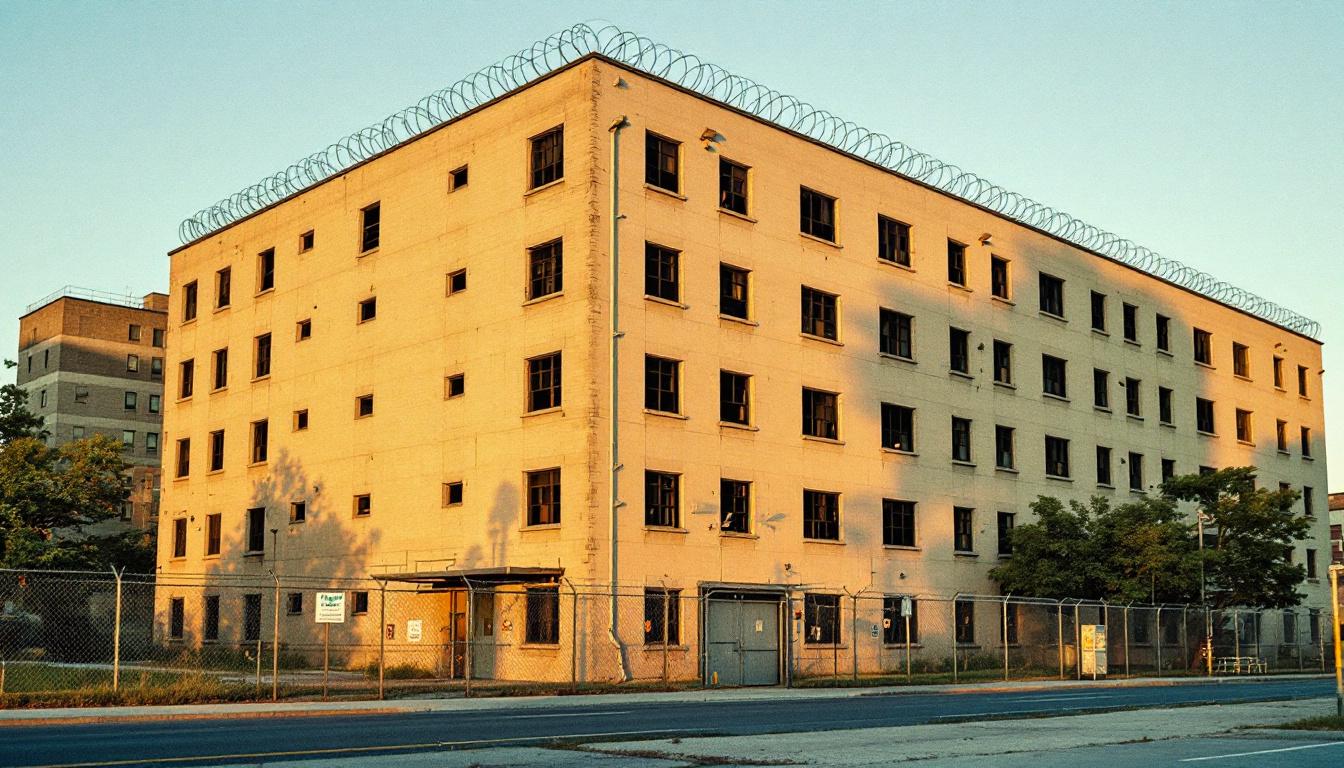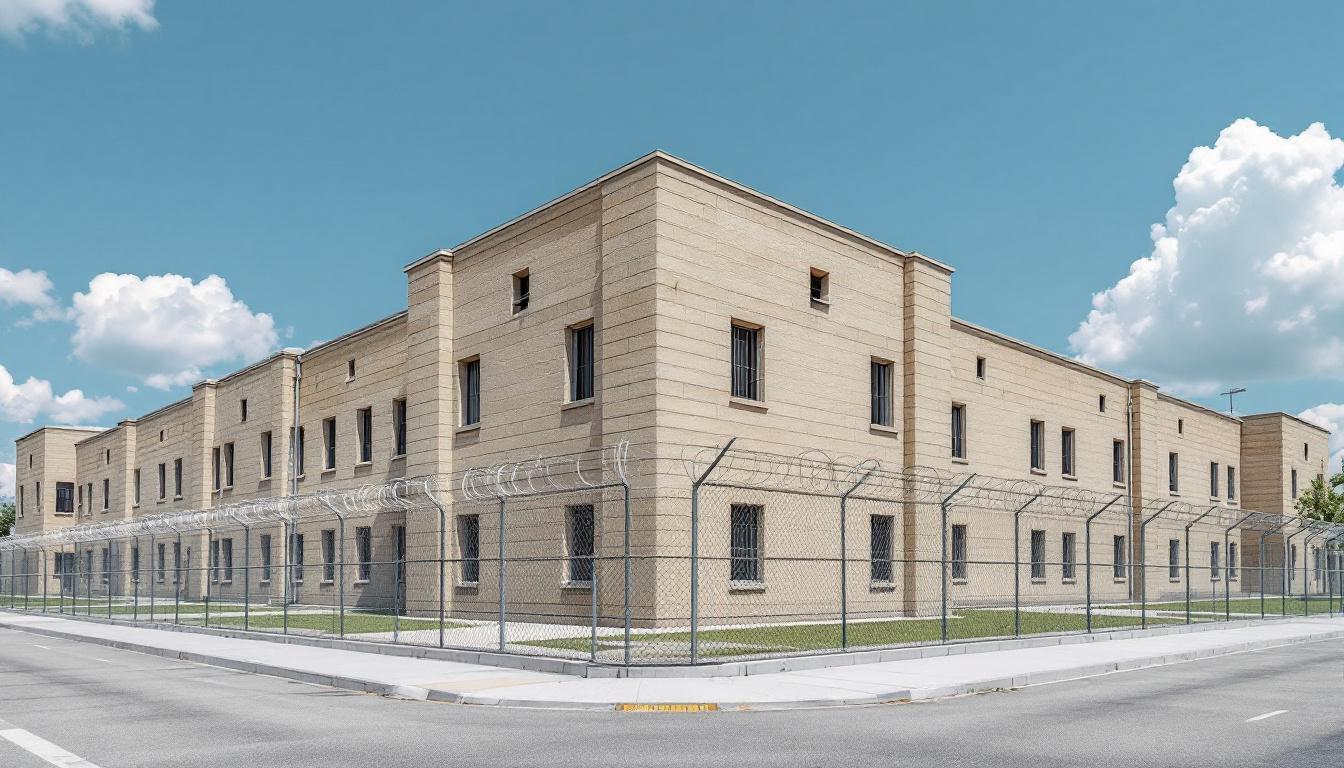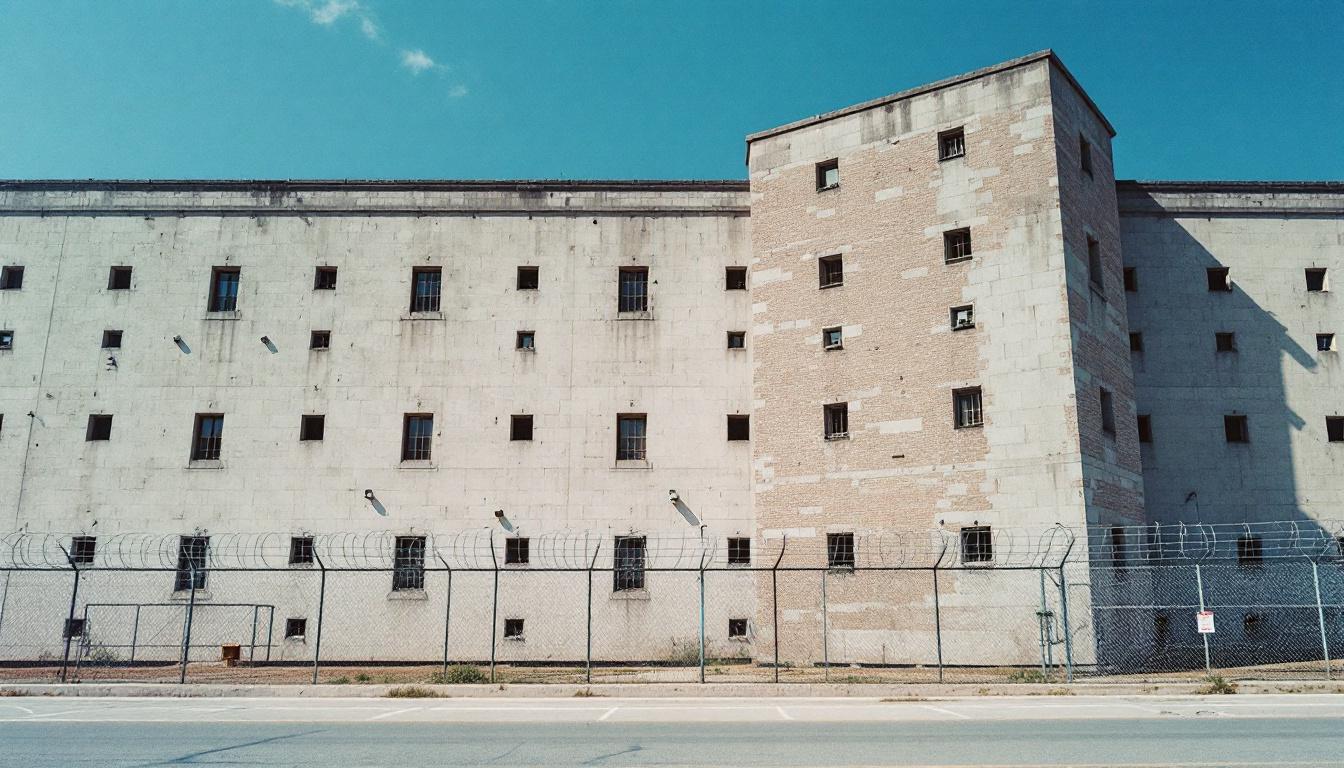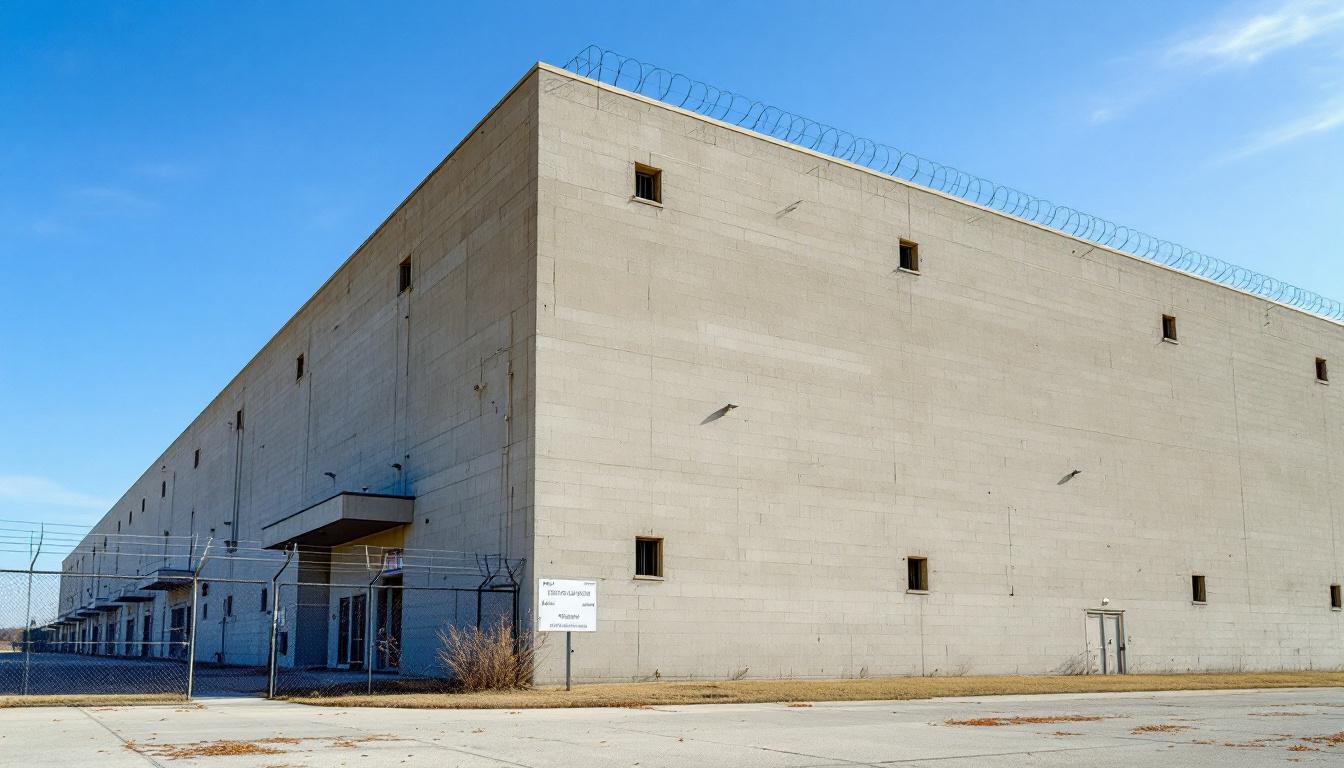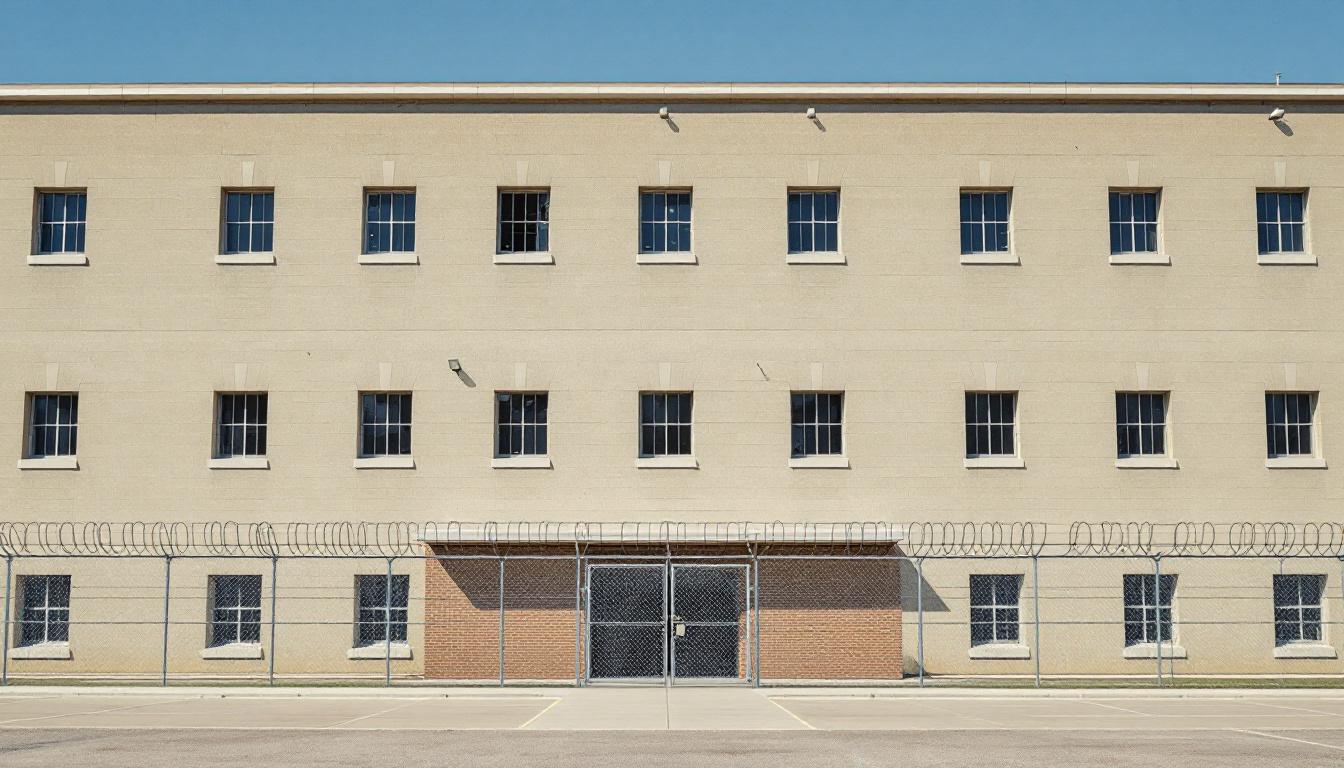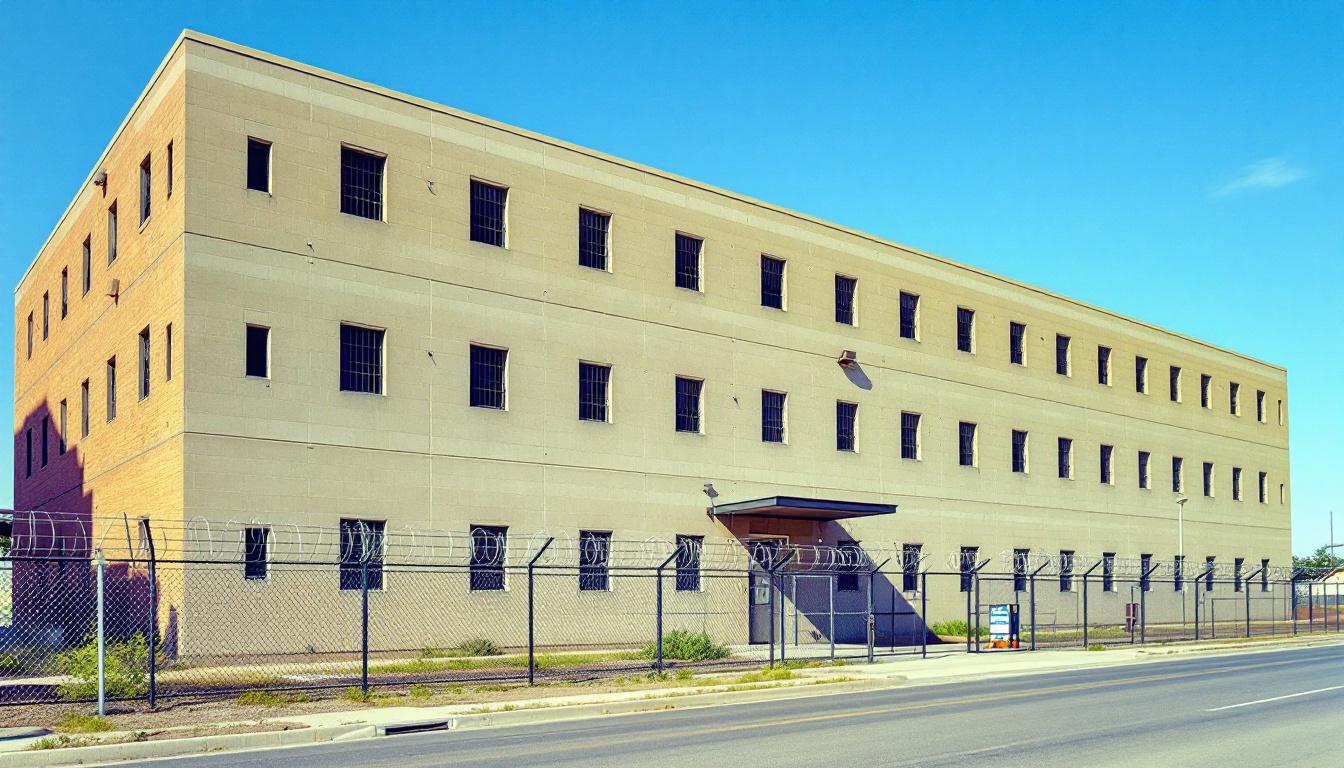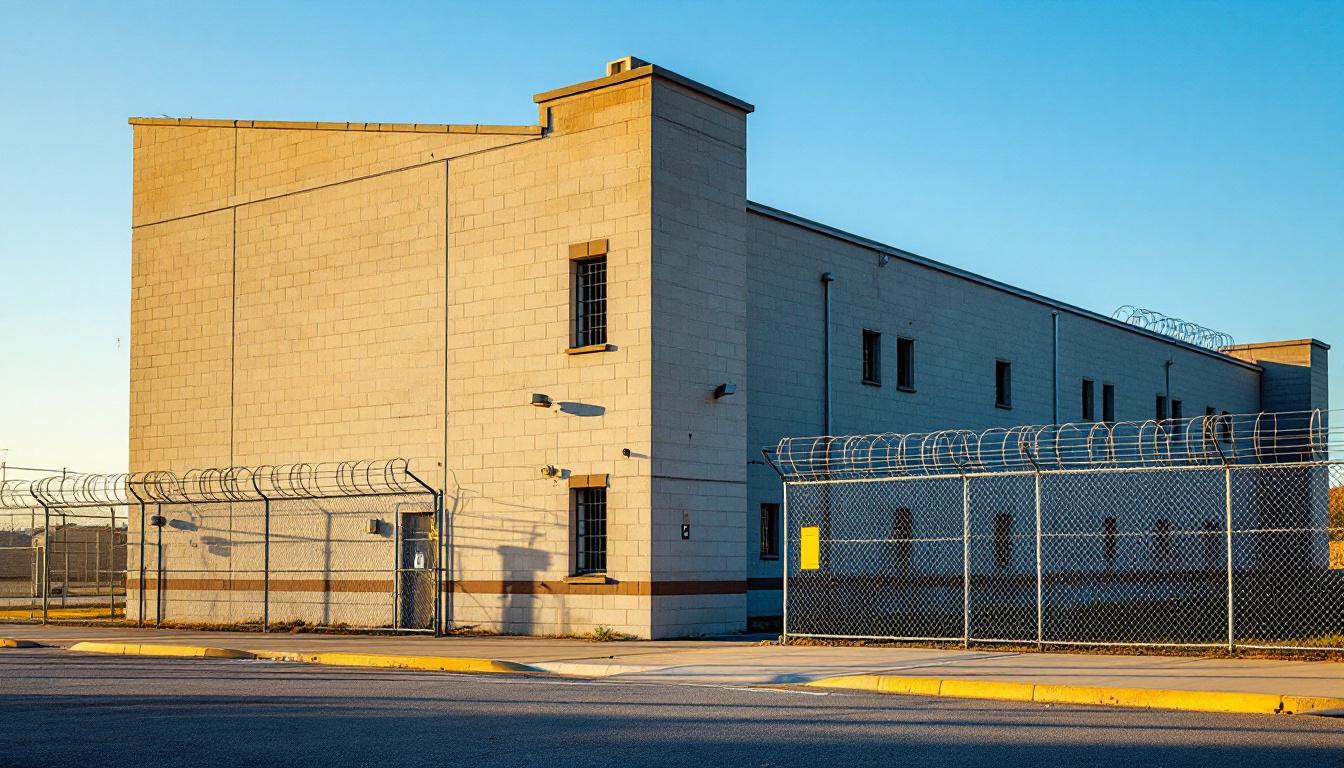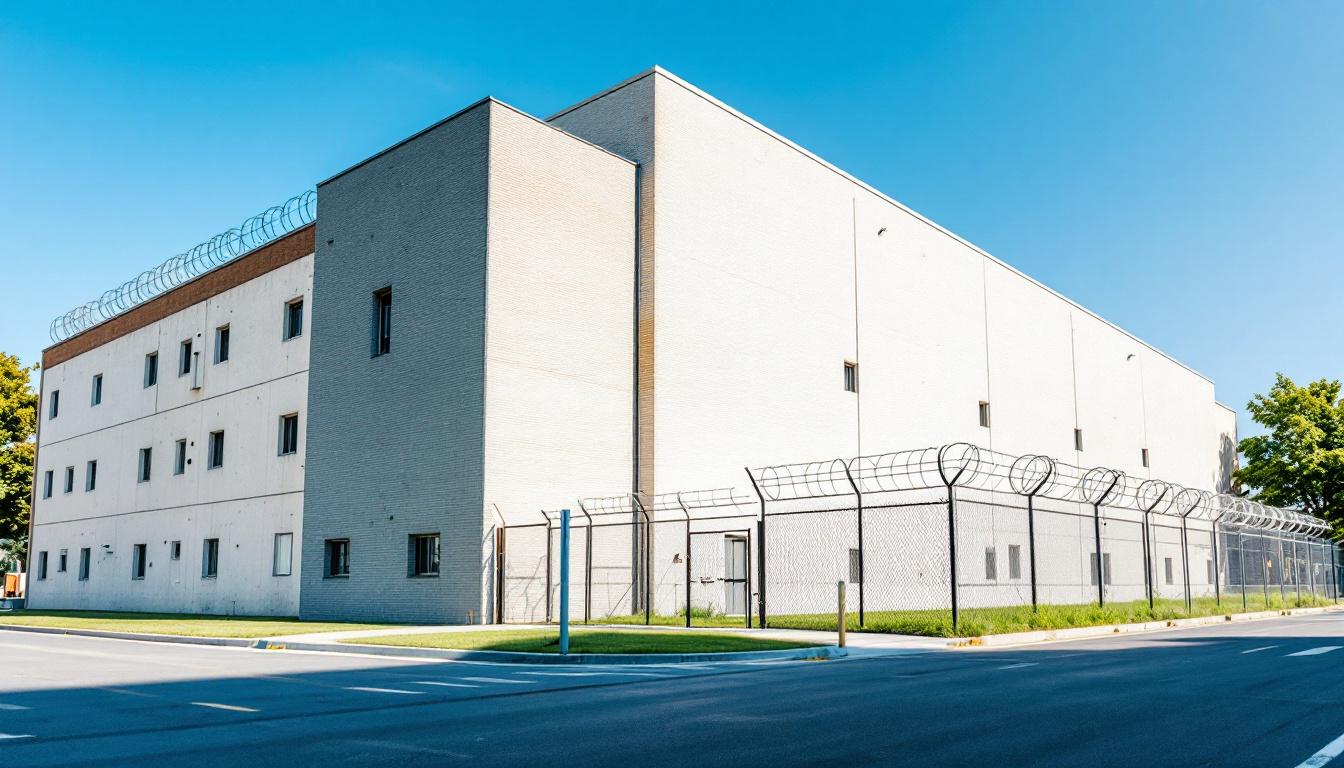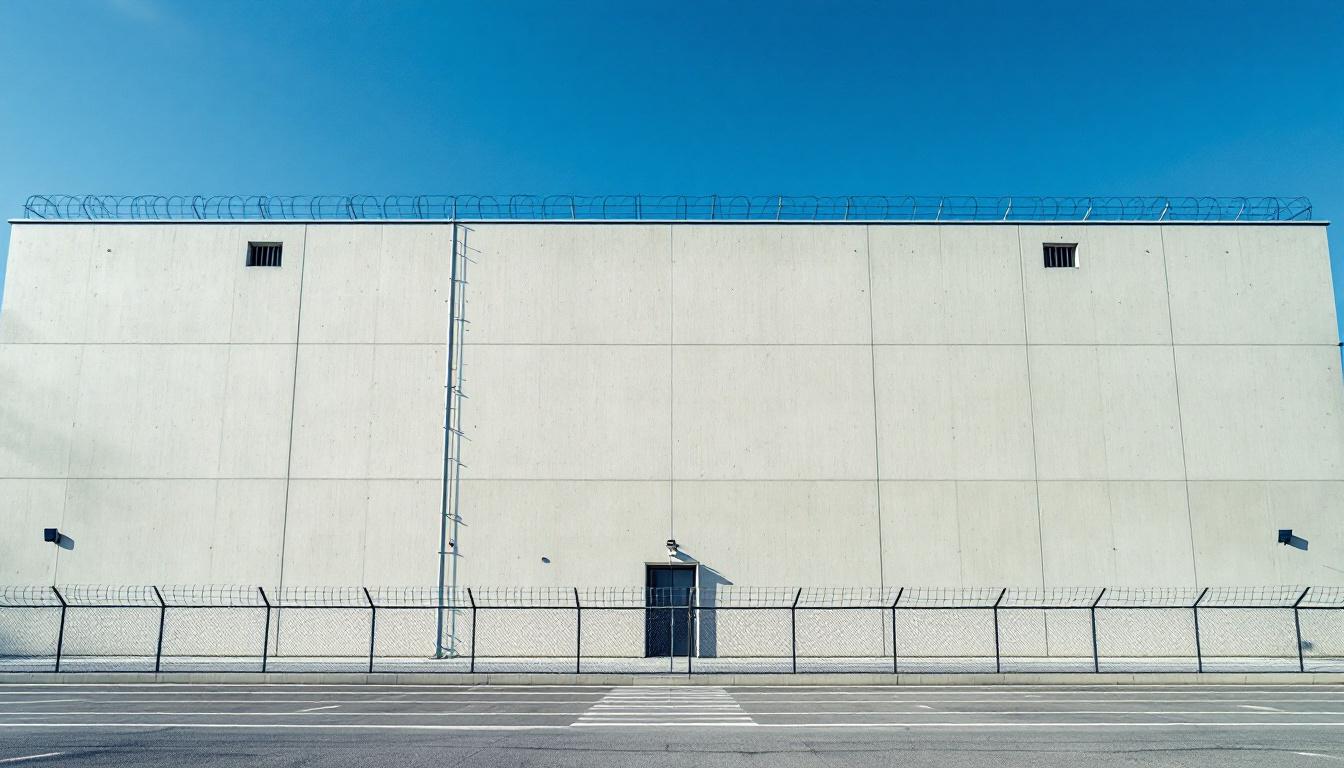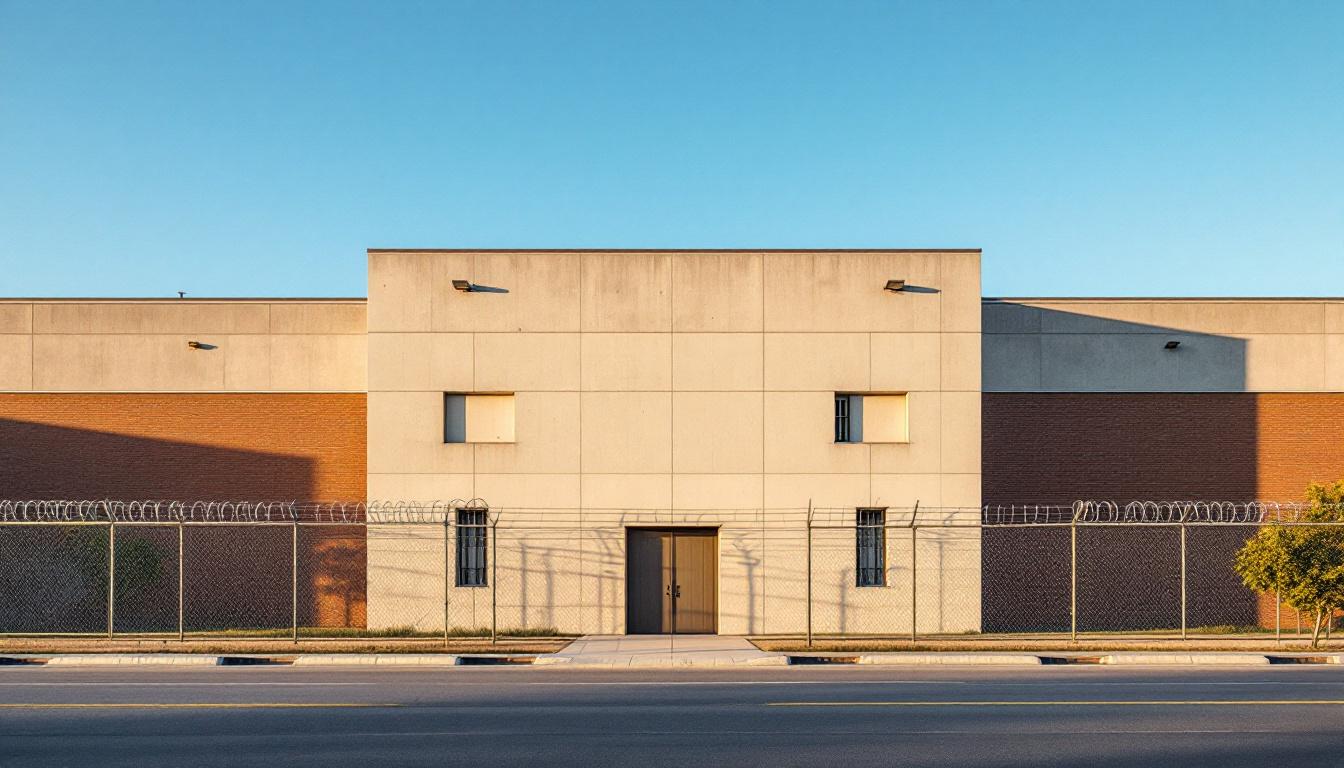
Quick Navigation
How to contact an inmate at Caddo County Sheriff's Office
This comprehensive guide will walk you through how to connect with an inmate at Caddo County Sheriff's Office. Follow the steps below to find an inmate and send letters and photos:
- Search for the inmate using our search tool below
- Create your account or log in to Penmate
- Write your message (up to 6,000 characters)
- Send instantly - inmates receive printed copies daily
Find an Inmate
Search for an inmate to start communicating today
Tip: You can search by first name, last name, or inmate ID number
To contact a person at Caddo County Sheriff's Office start by searching for the person on the official facility website. Perform a search by following these steps:
- Step 1: Enter their first name and last name into the search form and click "Search"
- Step 2: Locate their inmate record
- Step 3: Write down their Inmate ID and any housing information provided
Important! Be sure to enter the person's full name. Nicknames should not be used.
How to Send Messages to Inmates

You can use your phone or computer to send emails, letters, and photos to an inmate. Messages are sent electronically to inmate tablets or kiosks at the facility. If you would like to send a message, start by searching for an inmate at Caddo County Sheriff's Office.
Sending Photos and Postcards

A great way to send love and support to a loved one at Caddo County Sheriff's Office is to send photos and postcards. It only takes a few minutes to send photos from your phone and it makes a huge difference. You can also mail postcards with words of support and inspiration, or design your own postcard for special moments like birthdays and holidays.
Important! Be sure not to send any explicit photos or they may not be approved by the facility. You can also use a photo printing app like Penmate to make sure your photos are printed at the correct size (4x6 or 3x5) and are mailed according to the rules and regulations of Caddo County Sheriff's Office.
Frequently asked questions about Caddo County Sheriff's Office
-
How long does it take to deliver a message?
If you're sending an email message your letter is usually delivered within 24-48 hours. For messages sent via mail you should expect delivery within 3-7 days. All messages will need be approved by Caddo County Sheriff's Office.
-
How much does it cost to send a message to Caddo County Sheriff's Office?
You can send a message free using your phone or mail a message via USPS for the price of a $0.60 stamp and envelope. You can also purchase credits or e-stamps from services starting at $1.99.
-
What services can I use to contact an inmate at Caddo County Sheriff's Office?
Penmate
You can use Penmate to send letters and photos to an inmate from your phone. It's an easy way to stay in touch during your loved one's incarceration. Use the inmate locator to find an inmate's location and contact information, then you can send messages within a few minutes.
Securus messaging
Securus may be another option for communicating with an inmate at Caddo County Sheriff's Office. You can create a friends and family account and purchase credits to send messages. All messages will be reviewed and must be approved by the facility.
JPay
Some county jails and state prisons may support sending messages with JPay. You must register an account with the system, find your loved one, and purchase stamps to send messages. For some locations you can also attach photos.
Smart Jail Mail
You may also check if Smart Jail Mail is available at Caddo County Sheriff's Office. Smart Jail Mail is operated by Smart Communications and has contracted with some state and county jails. After purchasing credits, your messages and photos are sent to the facility, printed out, and then handed out to your loved one.
-
What is the mailing address of Caddo County Sheriff's Office?
Mailing address:
Caddo County Sheriff's Office
201 S W Oklahoma Ave
Anadarko, OK 73005
Phone: (405) 247-6666 -
What are the visiting hours at Caddo County Sheriff's Office?
Visiting hours at Caddo County Sheriff's Office vary by housing unit and security level. Generally, visits are scheduled on weekends and holidays, with some facilities offering weekday visits. Contact the facility directly at (405) 247-6666 or check their website for the current visiting schedule. Visits typically last 30-60 minutes and must be scheduled in advance.
-
What items are prohibited when sending mail to Caddo County Sheriff's Office?
Prohibited items typically include: cash, personal checks, stamps, stickers, glitter, glue, tape, staples, paperclips, polaroid photos, musical or blank greeting cards, hardcover books, magazines with staples, and any items containing metal or electronics. Only send letters on plain white paper with blue or black ink. Photos must be printed on regular photo paper (no Polaroids). Always check with Caddo County Sheriff's Office for their specific mail policies.
-
How do I send money to an inmate at Caddo County Sheriff's Office?
You can send money to an inmate at Caddo County Sheriff's Office through several methods: 1) Online using JPay, Access Corrections, or the facility's approved vendor, 2) Money orders mailed directly to the facility with the inmate's name and ID number, 3) Kiosks located in the facility lobby, or 4) Over the phone using a credit or debit card. Fees vary by method, typically ranging from $2.95 to $11.95 per transaction.
-
Can I schedule a video visit with an inmate at Caddo County Sheriff's Office?
Many facilities now offer video visitation as an alternative to in-person visits. At Caddo County Sheriff's Office, video visits may be available through services like Penmate, Securus Video Connect, GTL, or ICSolutions. Video visits typically cost $10-20 for 20-30 minutes and must be scheduled in advance. You'll need a computer or smartphone with a camera and reliable internet connection. Contact the facility for their specific video visitation policies and approved vendors.
-
What identification do I need to visit an inmate at Caddo County Sheriff's Office?
All visitors must present valid government-issued photo identification such as a driver's license, state ID, passport, or military ID. Minors must be accompanied by a parent or legal guardian who can provide the minor's birth certificate. Some facilities require visitors to be on the inmate's approved visitation list, which may require a background check. Contact Caddo County Sheriff's Office for specific ID requirements and visitor approval procedures.
-
How can I find out an inmate's release date?
To find an inmate's release date at Caddo County Sheriff's Office, you can: 1) Use the online inmate search tool if available, 2) Call the facility's records department, 3) Contact the inmate's case manager or counselor, or 4) Have the inmate provide this information during a call or visit. For privacy reasons, some facilities only release this information to immediate family members.
Facility Overview
Contact Information
Caddo County Sheriff's Office201 S W Oklahoma Ave
Anadarko, OK 73005
Phone: (405) 247-6666
Official Website
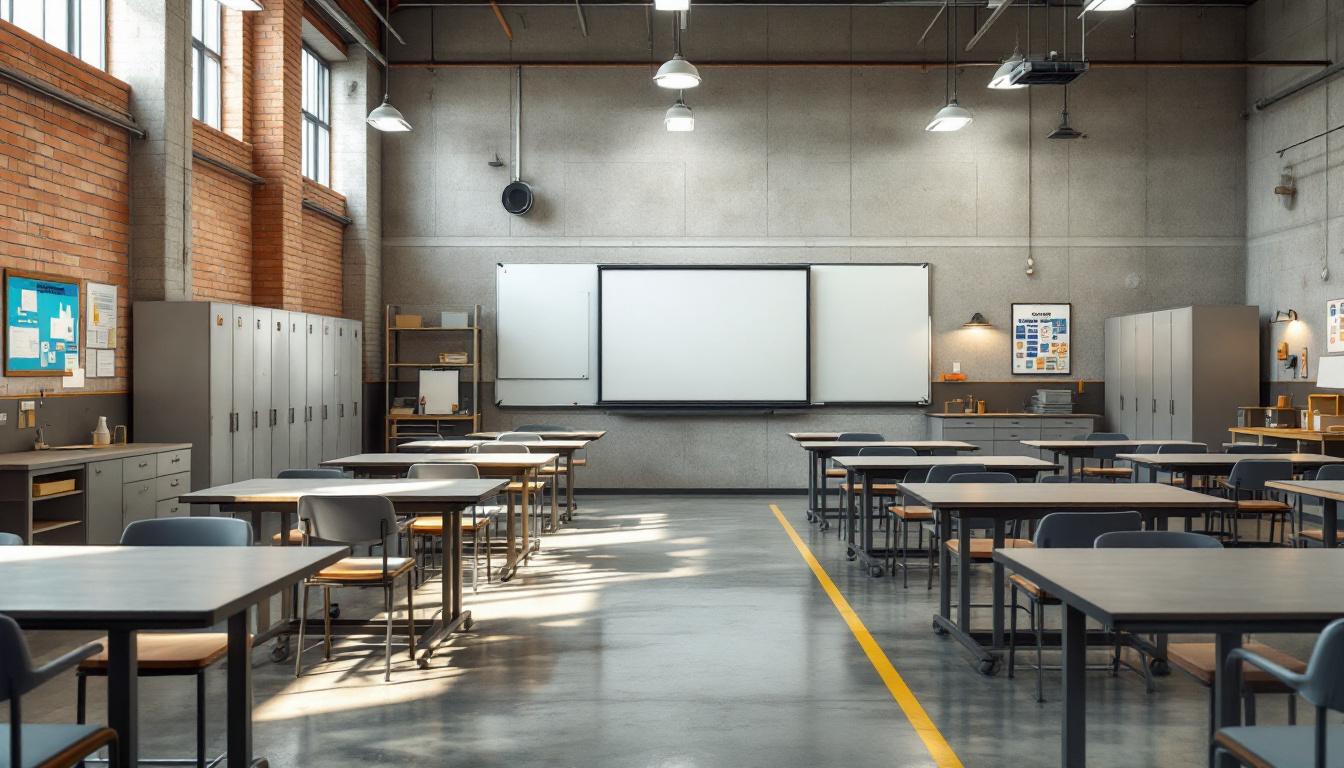
About Caddo County Sheriff's Office
Nestled within the community of Shreveport, the Caddo County Detention Center, OK operates as a vital component of the region's criminal justice framework, serving both local and county jurisdictions throughout this area of Oklahoma. This OK correctional facility maintains its commitment to balancing secure custody with meaningful opportunities for personal growth, reflecting a broader understanding that effective detention involves more than containment. The facility's operational philosophy centers on creating an environment where accountability meets opportunity, allowing individuals to address underlying issues that may have contributed to their involvement with the justice system.
The detention center typically offers residents services that may include educational programming, substance abuse counseling, and vocational training opportunities designed to support successful community reintegration. Staff members generally work to maintain facility security while fostering an atmosphere conducive to rehabilitation and personal reflection. Through structured daily routines and access to various support services, the facility aims to provide individuals with tools and resources that can facilitate positive life changes. Mental health services and religious programming often complement these offerings, recognizing the diverse needs of the population served.
As part of Oklahoma's correctional landscape, this detention center contributes to public safety while emphasizing the importance of preparing individuals for their eventual return to the community. The facility's approach generally reflects current best practices in corrections, focusing on evidence-based programs that address criminogenic factors and promote prosocial behavior. By maintaining strong connections with local service providers and community organizations, the Caddo County Detention Center, OK works to ensure that residents have access to continuing support systems that extend beyond their period of incarceration, ultimately serving the broader goal of reducing recidivism and enhancing community safety.
Programs & Services
Comprehensive rehabilitation initiatives at Caddo County Detention Center typically focus on addressing the root causes of criminal behavior through structured learning and personal development opportunities. The facility's approach emphasizes skill-building and educational advancement as pathways to successful reintegration. Residents may participate in multiple initiatives simultaneously, creating a holistic framework that addresses various aspects of personal growth and practical preparation for release.
Educational initiatives often include structured learning programs designed to help residents complete their high school equivalency or advance their academic skills through tutoring programs. These academic opportunities may deliver instruction in core subjects while incorporating civic education components that help participants understand their rights and responsibilities as citizens. Moreover, vocational training initiatives typically provide hands-on experience in marketable trades, allowing residents to develop practical skills that may enhance their employment prospects upon release. These programs often focus on industries with strong job markets in Oklahoma, giving participants relevant experience in their chosen fields.
Support initiatives frequently include faith-based programs that address spiritual and emotional wellness needs of residents who choose to participate. These voluntary programs may offer counseling, group discussions, and community-building activities that help participants develop positive coping strategies. Moreover, practical skill-building initiatives such as printing operations may provide residents with technical experience while contributing to facility operations. These therapeutic and support services typically work in conjunction with educational and vocational initiatives to create a comprehensive approach to rehabilitation and personal development.
Daily Life & Visitation
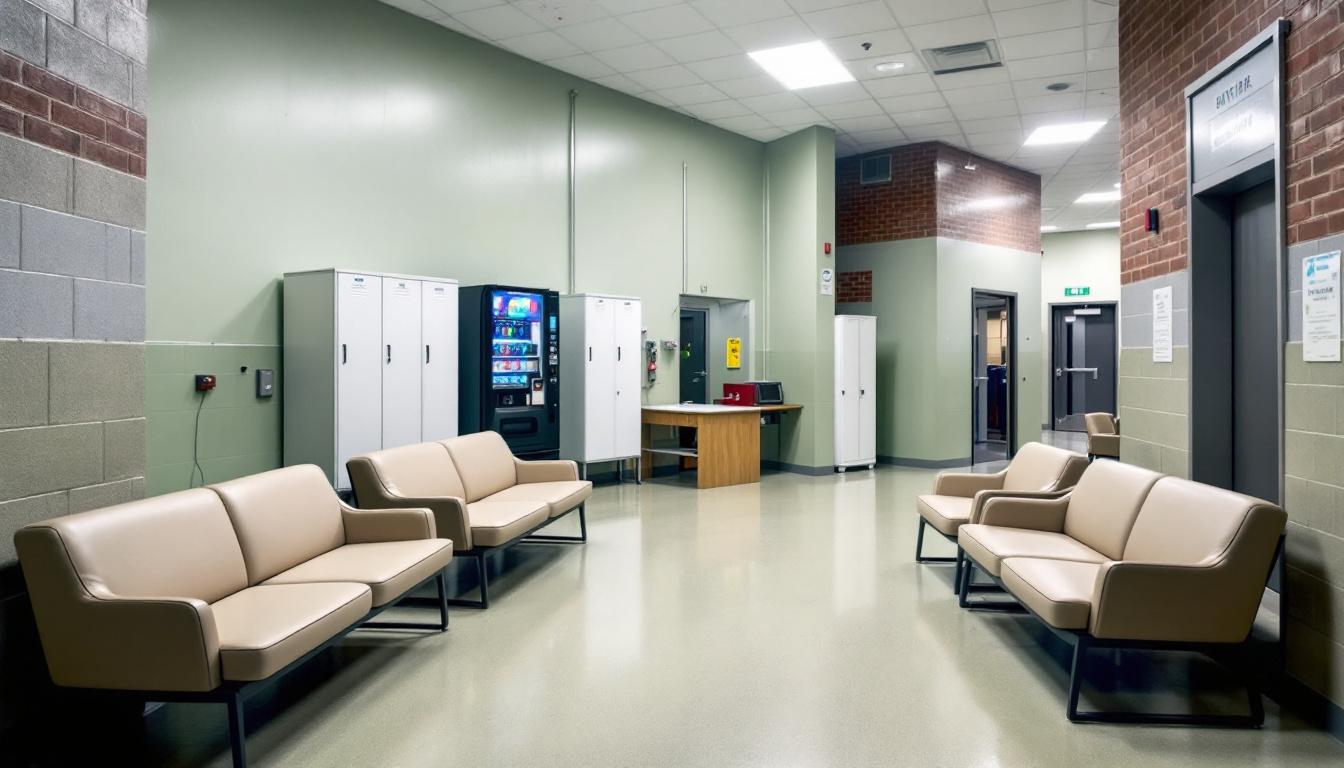
At present, structured wake-up calls and scheduled meal times actively anchor each day within a predictable framework that many residents find reassuring. The facility typically maintains consistent daily routines that begin early in the morning and continue through evening hours. Count times occur regularly throughout the day, providing additional structure that helps residents anticipate what comes next.
Living accommodations generally consist of shared housing units where residents may be assigned based on various factors including security classification and available space. Each housing area typically includes common spaces for television viewing and social interaction during designated recreation periods. Personal property allowances usually permit residents to maintain basic comfort items, while commissary services often provide opportunities to purchase approved personal care items and snacks. Meals are typically served in designated dining areas at scheduled times, with menus that generally meet basic nutritional requirements.
Moreover, the facility often delivers structured programming that may include educational opportunities, work assignments, and recreational activities designed to maintain productive daily engagement. Whereas some programs focus on skill development, others emphasize physical fitness and wellness through exercise periods and outdoor recreation when weather permits. Family connections typically remain supported through scheduled visitation periods and telephone access, helping residents maintain important relationships during their stay. These various elements work together to create an environment where predictable routines can provide a sense of stability amid challenging circumstances.
Ready to Connect?
Start communicating with your loved one today
Search for an Inmate
